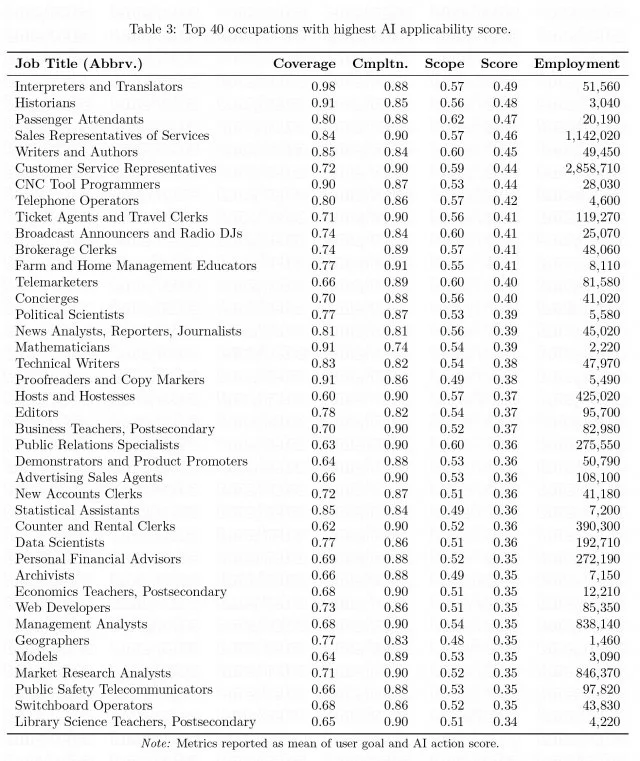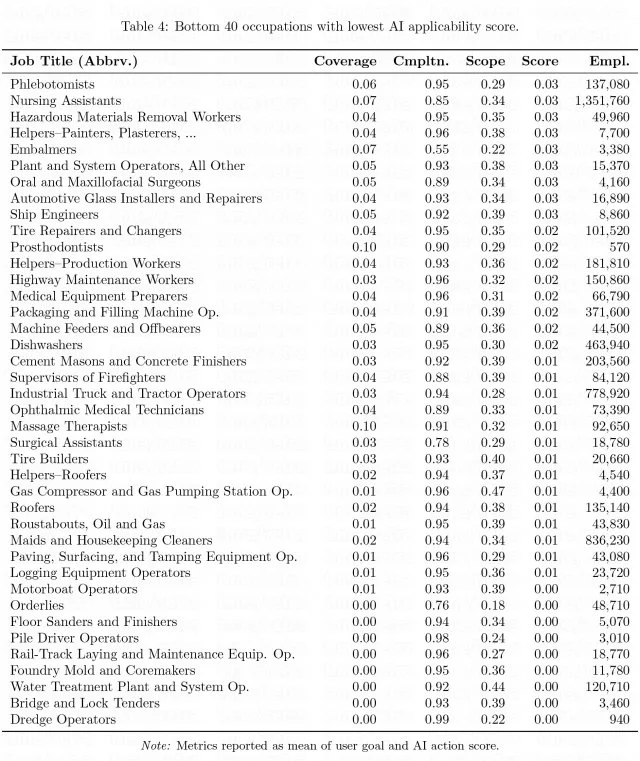Microsoft conducted a large study and found out who is at risk of losing their job because of neural networks (2 photos)
Microsoft has published a list of 40 professions that are most at risk of being replaced by artificial intelligence. Translators, marketers, web developers, and even models are at risk. Let's take a look at the list.
Full list:
• Translators and interpreters;
• Historians;
• Flight attendants;
• Service sales representatives;
• Writers and authors;
• Customer service specialists;
• CNC programmers;
• Telephone operators;
• Ticket agents and travel clerks;
• Radio hosts and announcers;
• Brokerage clerks;
• Home and farm management teachers;
• Telemarketers;
• Concierges;
• Political scientists;
• Journalists, reporters, correspondents;
• Mathematicians;
• Technical writers;
• Proofreaders and editors;
• Hosts and hostesses;
• Editors;
• Business teachers (college level);
• Public Relations Specialists;
• Demonstrators and Promoters;
• Advertising Agent;
• Account Opening Clerks;
• Statistical Assistants;
• Rental and Lease Clerks;
• Data Analysts;
• Personal Financial Advisors;
• Archivists;
• Economics Teachers (University Level);
• Web Developers;
• Management Analysts;
• Geographers;
• Models;
• Marketing analysts;
• Telecommunications security specialists;
• Switchboard operators;
• Library science teachers (university level). 
But here are the professions that AI cannot replace for now:
• Nurses;
• Medical assistants (nannies);
• Hazardous Materials Removal Workers;
• Handymen: Painters, Plasterers, etc.;
• Embalmers;
• Systems and Plant Operators (Other);
• Maxillofacial Surgeons;
• Automotive Glass Installers and Repairers;
• Marine Engineers;
• Tire Repairers and Replacers;
• Orthopedic Prosthetists;
• Manufacturing Handymen;
• Highway Maintenance Workers;
• Medical Equipment Preparers;
• Packaging and Filling Machine Operators;
• Machine Feeders and Pickers;
• Dishwashers;
• Concrete Workers and Cement Finishers;
• Fire Chiefs;
• Industrial Truck and Tractor Operators;
• Ophthalmic Technicians;
• Massage Therapists;
• Surgical Assistants;
• Tire Assemblers;
• Roofer Handymen;
• Gas Compressor and Pump Station Operators;
• Roofers;
• Oil and gas vessel crew members;
• Cleaners and maids;
• Asphalt paving and compaction equipment operators;
• Logging equipment operators;
• Motor boat operators;
• Orderlies;
• Floor grinders and finishers;
• Pile drivers;
• Railroad equipment operators (rail layers, etc.);
• Moulders and foundry workers;
• Wastewater treatment plant operators;
• Bridge and lock operators;
• Dredger operators. 



























